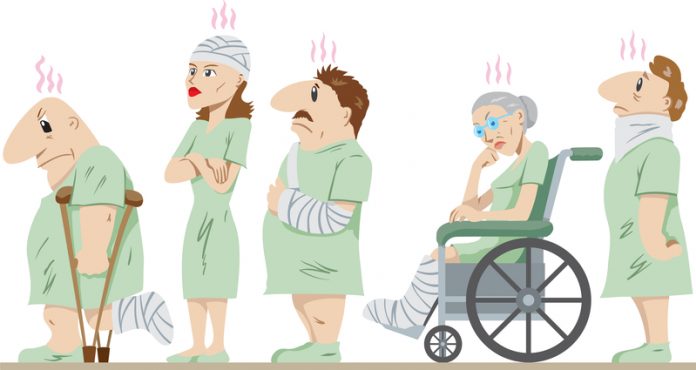Have you ever been a patient in a hospital? You’re sick, in pain and dealing with health issues that are stressful. The environment is strange, it’s not your bed and people come in at all hours, waking you with pokes and prods. The stress and uncomfortable feelings are even more enhanced for family members. All you want is to heal, start feeling better and go home. Your first encounter with the person who symbolizes healing, the doctor, is even more unpleasant than what illness put you in the hospital! They are short-tempered, a bit grumpy and a bit rude. It doesn’t create a positive environment for healing. Those encounters with ill-tempered physicians upset both patient care and family members. Is there a correlation between those grumpy physicians and adverse outcomes in patient care?
The Case for Patient Care and Positive Physicians
A recent study published online in JAMA Surgery demonstrated a relationship between patient/family member complaints and surgeons with higher rates of surgical site infections and other avoidable adverse outcomes. The study further showed that making patients and families unhappy increases the likelihood of patient/families filing suit in the face of any adverse outcomes.
What this study reveals is that those high-risk physicians not only make patients and families unhappy, their disrespectful behaviors also impact the ability of other surgical team members to do their work. Patient care from surgeons attracting the highest numbers of patient complaints experienced nearly 14 percent more surgical and medical complications in the 30 days following procedures than patients seeing surgeons perceived as respectful.
Better Outcomes and Happier Physicians
Like in so many other occasions in our lives, we know that happier people get happier outcomes, both in personal and professional environments. Research shows that happiness is not the result of bouncing from one joy to the next; achieving happiness typically involves times of considerable discomfort. Money is important to happiness, but only to a certain point. Money buys freedom from worry about the basics in life—housing, food, clothing. Genetic makeup, life circumstances, achievements, marital status, social relationships, even your neighbors—all influence how happy you are. Or how happy you can be.
Physicians are mere mortals, just like the rest of society, they have their ups and downs in life. They are entitled to have a bad day. We can also say that those behaviors identified in the survey are a small percentage of the physician community, but they have a big impact! Physicians must remember their impact on our health and the quality of care they are providing. A bad day can easily translate to unhappy patients, family members and patient outcomes.
Leave your troubles at home and make a positive impact on the healing process.
Reference














